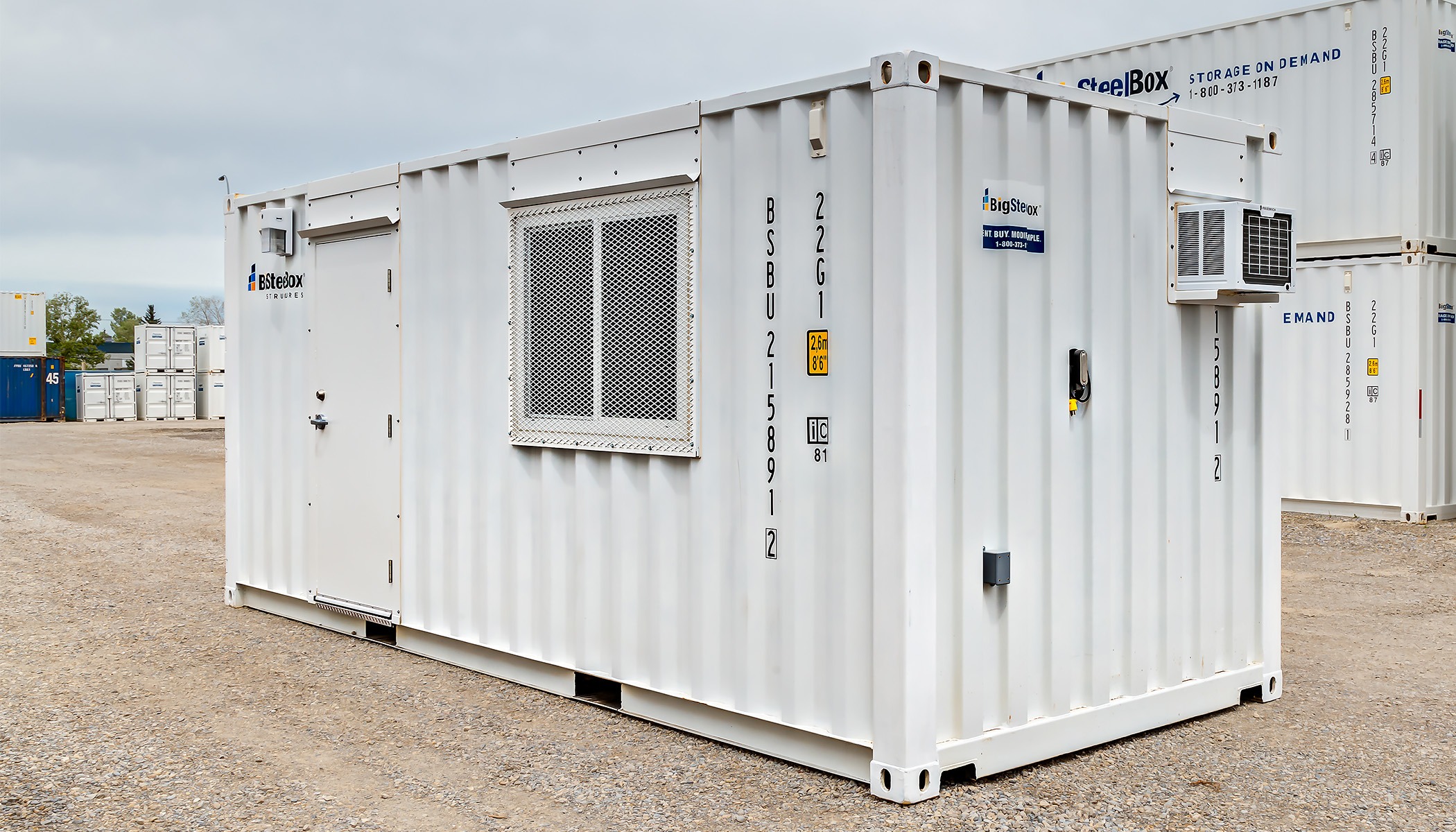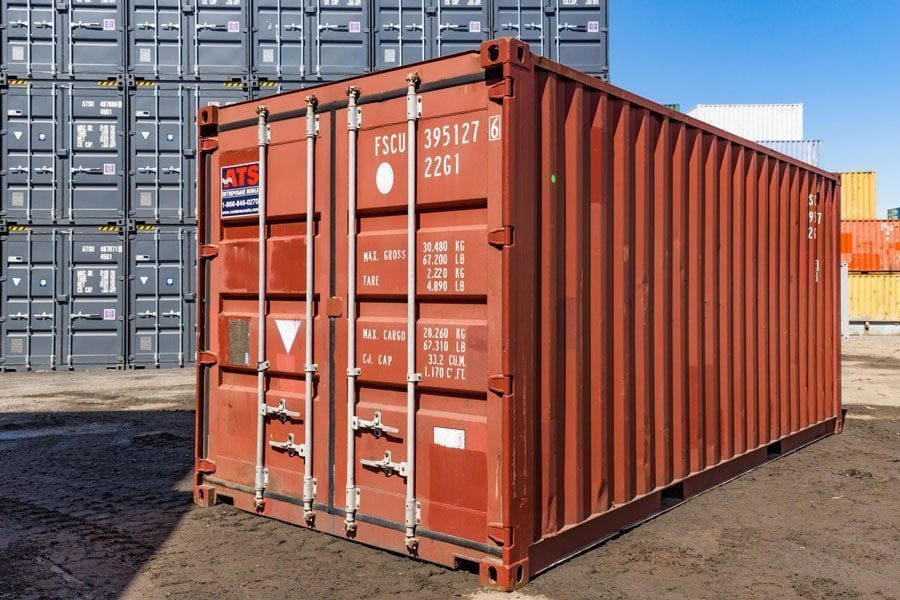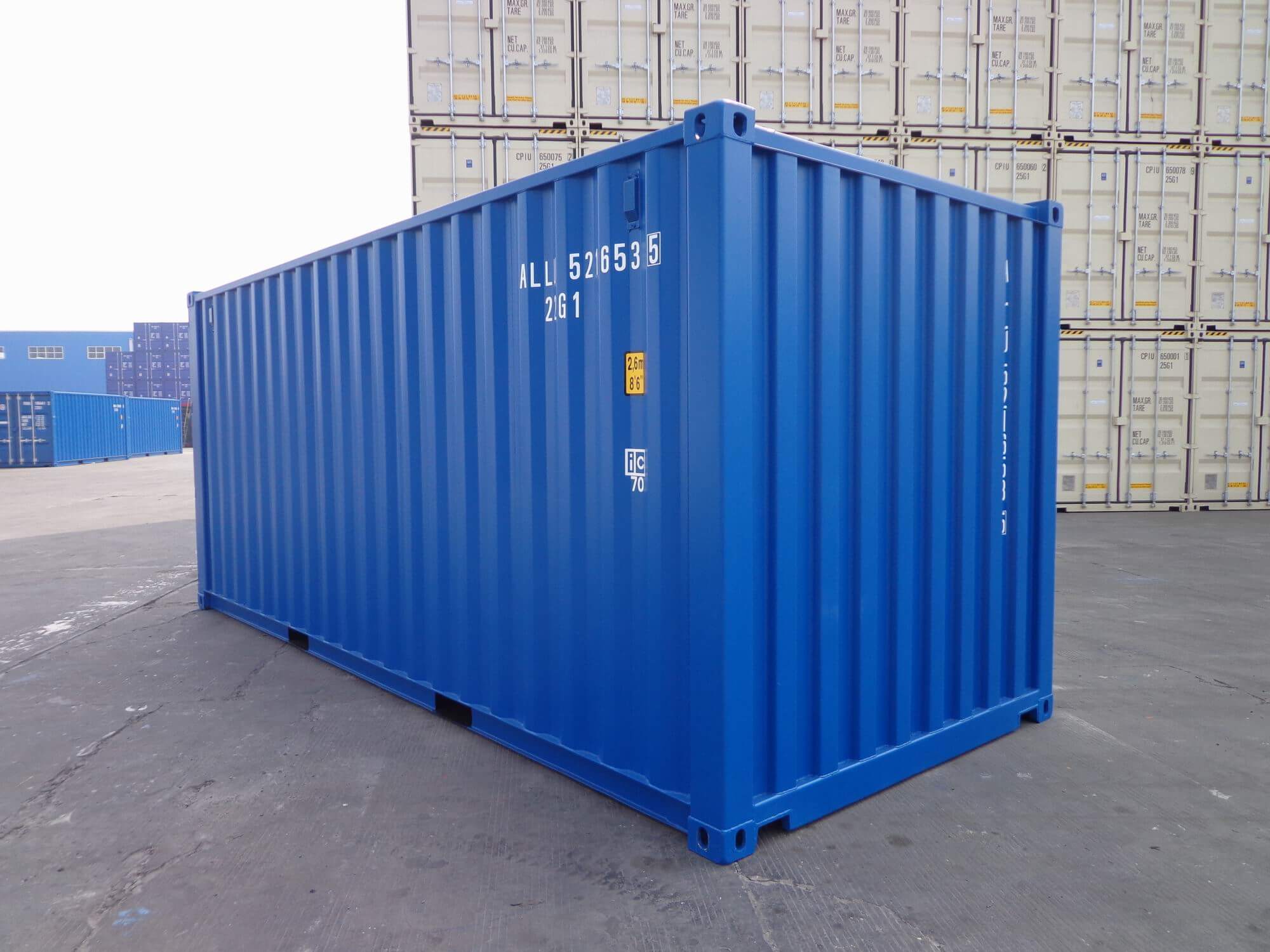The evolution of Shipping Containers for Sale and their role in commerce
Every little thing You Required to Find Out About Shipping Containers and Their Practical Applications
Shipping containers have evolved from mere tools for transport to flexible structures with numerous useful applications. Their durable style and typical sizing make them suitable for a variety of usages beyond shipping. From ingenious housing services to sustainable farming, their flexibility is notable. The possibilities do not finish there. Exploring their numerous functions reveals unusual insights into creative solutions and modern obstacles. What other functions could these containers play in today's globe?
The Style and Structure of Shipping Containers

Internally, containers are made to make best use of space, usually featuring wooden or steel floor covering that can support considerable weight. Ventilation systems might be incorporated to stop moisture accumulation, which is vital for sensitive cargo. Additionally, reinforced corners enable simple handling by cranes and forklifts, assisting in smooth loading and dumping. This thoughtful style and framework add to the containers' convenience across numerous shipping and storage applications.
Advantages of Making Use Of Shipping Containers
While several transport methods have their benefits, making use of shipping containers stands out as a result of their unparalleled adaptability and performance. Shipping containers supply a standard dimension, making them simple to transfer and stack throughout different modes of transport, consisting of ships, trains, and vehicles. This standardization decreases loading and dumping times, therefore increasing total productivity.
Shipping containers are constructed from resilient materials, providing robust protection for goods throughout transit. They are weather-resistant and protected, minimizing the risk of damages from ecological elements or theft. Furthermore, the modular layout of delivery containers enables simple modification, making it possible for services to adapt them for different functions, such as storage space or mobile offices.
Finally, their transportability and cost-effectiveness make shipping containers an eye-catching choice for services wanting to enhance logistics and supply chain operations. These benefits add to the growing appeal of shipping containers in various sectors.
Innovative Real Estate Solutions With Shipping Containers
Innovative real estate services have emerged as an exciting application of shipping containers, leveraging their integral staminas for household use. These versatile structures use a lasting alternative to typical building products, typically at a portion of the price. Architects and designers have actually changed containers into trendy, functional homes, satisfying diverse way of lives and choices.

Shipping containers are environmentally pleasant, promoting recycling and reducing waste. Numerous jobs focus on energy efficiency, including solar panels and eco-friendly roofing systems. As urbanization increases, these cutting-edge real estate options provide a sensible response to housing lacks while fostering a distinct building aesthetic.
Shipping Containers in Retail and Pop-Up Shops
A growing variety of stores are transforming to shipping containers as a vibrant service for pop-up shops and retail rooms. These flexible frameworks offer an economical alternative to typical store fronts, enabling services to develop unique, attractive environments that attract customers. Their modular layout enables simple transport and installation, making them excellent for temporary or seasonal retail places.
Stores can customize delivery containers to reflect their brand name identity, changing them into aesthetically appealing shops that stand out in jampacked industries. The small nature of containers likewise urges efficient use of space, permitting innovative designs that enhance customer circulation and engagement. In addition, shipping containers can be positioned in unique places, such as urban parks or uninhabited lots, raising ease of access and foot web traffic.
As the retail landscape evolves, delivering containers give a flexible and ingenious solution that satisfies the demands of contemporary consumers while improving the purchasing experience.
Sustainable Farming Practices Utilizing Shipping Containers
Lasting farming practices increasingly include delivery containers as ingenious services for agriculture - shipping container storage. These container farms utilize hydroponics to optimize area and resource efficiency, providing a cost-efficient technique to food production. By changing delivery containers into agricultural hubs, farmers can resolve food security and ecological worries concurrently
Container Farming Advantages
While standard farming deals with obstacles such as land shortage and climate modification, container farming offers a viable choice that takes full advantage of room and sources. This ingenious method permits year-round plant manufacturing in regulated environments, minimizing dependence on weather. Container ranches make use of much less water than traditional farming, promoting sustainability and preservation. They can be established in urban areas, bringing fresh fruit and vegetables closer to customers and lowering transport exhausts. In addition, the modular nature of delivery containers makes it possible for scalability, permitting farmers to adjust procedures based upon demand. Container farming additionally decreases chemical use by creating an enclosed environment, ultimately enhancing food security. As metropolitan populations grow, container farming becomes a functional solution to meet the raising demand for regional, sustainable food sources.
Hydroponics in Containers
Hydroponics, which enables plants to grow without dirt by making use of nutrient-rich water, flourishes within the boundaries of delivery containers, making it an ideal technique for urban farming. These containers develop a regulated environment that optimizes light, moisture, and temperature level, allowing year-round cultivation. try here With minimal area in city locations, delivering containers offer a scalable solution for expanding fresh produce. Hydroponic systems within containers can consist of various techniques, such as nutrient movie method (NFT) and deep water culture (DWC), which take full advantage of return while minimizing water usage. This ingenious technique not only boosts food safety and security yet additionally reduces the carbon impact connected with typical farming methods. Subsequently, hydroponics in containers stands for a forward-thinking service for lasting urban food manufacturing.
Cost-efficient Farming Solutions
As food production encounters increasing difficulties as a result of climate modification and urbanization, shipping containers become an affordable remedy for farming. These versatile structures can be repurposed for various sustainable farming methods, such as hydroponics and vertical farming. By making use of controlled atmospheres within containers, farmers can maximize growth cycles and reduce source usage, consisting of water and plant foods. In addition, shipping containers can be tactically put in metropolitan areas, lessening transport expenses and improving accessibility to fresh produce. Their modular nature permits scalability, making it possible for farmers to broaden procedures as demand expands. Repurposing containers contributes to squander decrease, straightening with environment-friendly agricultural campaigns. Overall, delivering containers present cutting-edge chances for lasting and reliable food manufacturing.
Emergency Situation and Disaster Alleviation Applications of Shipping Containers

Organizations frequently utilize shipping containers to create mobile centers or area health centers, making certain that treatment gets to those in requirement. In addition, they can be changed into command centers for working with rescue procedures, consequently enhancing business performance throughout crises.
Containers can be changed to save important items such as garments, water, and food, guarding materials till they are dispersed. see page Their movement permits them to be easily moved to different areas, making certain that help shows up where it is most urgently required. In general, shipping containers play an essential role in boosting the efficiency of catastrophe alleviation initiatives worldwide.
Regularly Asked Concerns
How Are Shipping Containers Transported From One Location to An Additional?
Shipping containers are transported by means of trains, trucks, and ships, making use of cranes for packing and discharging. This multi-modal transport system ensures efficient motion across land and sea, connecting global supply chains and helping with international profession.
What Is the Typical Life Expectancy of a Delivery Container?
The typical lifespan of a delivery container typically ranges from 10 to 25 years, depending upon maintenance, usage, and environmental variables. Correct treatment can prolong their usability, while neglect may lead to damage and damages.
Can Shipping Containers Be Customized for Different Usages?
Yes, shipping containers can be modified for different uses. They offer as homes, offices, pop-up stores, and storage space units. Their flexibility permits for creative adjustments, making them suitable for a vast array of applications.
Are Shipping Containers Eco-friendly?
Shipping containers can be eco-friendly, as they advertise reusing and repurposing. Their durability minimizes waste, while their usage in alternate housing and businesses lessens the requirement for brand-new materials, adding to sustainable practices.
Just how Do I Pick the Right Dimension Shipping Container?
To pick the ideal dimension shipping container, one must analyze storage space requirements, consider the designated usage, and evaluate room accessibility - Shipping Containers. Typical dimensions include 40-foot and 20-foot containers, each offering various storage and transport requirements effectively
Innovative real estate services have emerged as an interesting application of shipping containers, leveraging their fundamental toughness for household use. The versatility of delivery containers enables for imaginative layouts, from single-unit residences to intricate multi-container plans. Sustainable farming methods significantly include shipping containers as innovative options for agriculture. Furthermore, the modular nature of delivery containers enables scalability, permitting farmers to helpful hints adjust procedures based on demand. Hydroponics, which enables plants to expand without soil by making use of nutrient-rich water, thrives within the boundaries of shipping containers, making it a perfect technique for city farming.